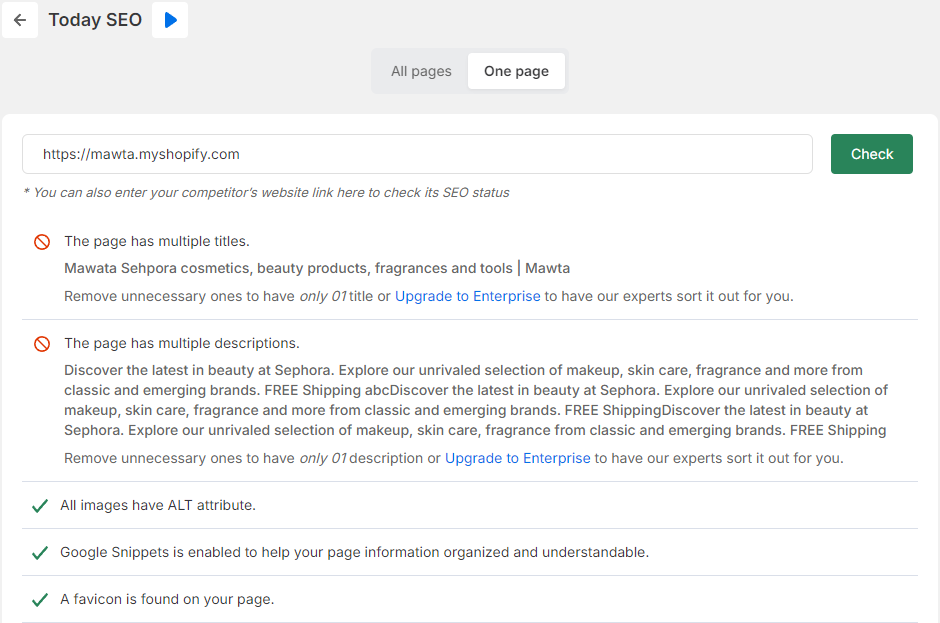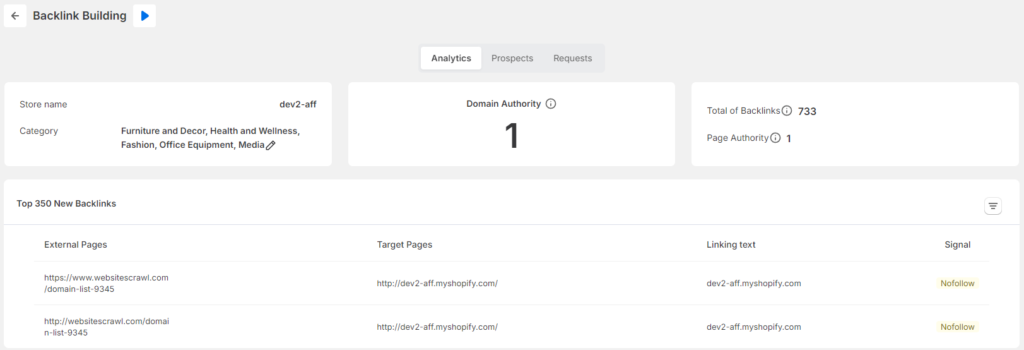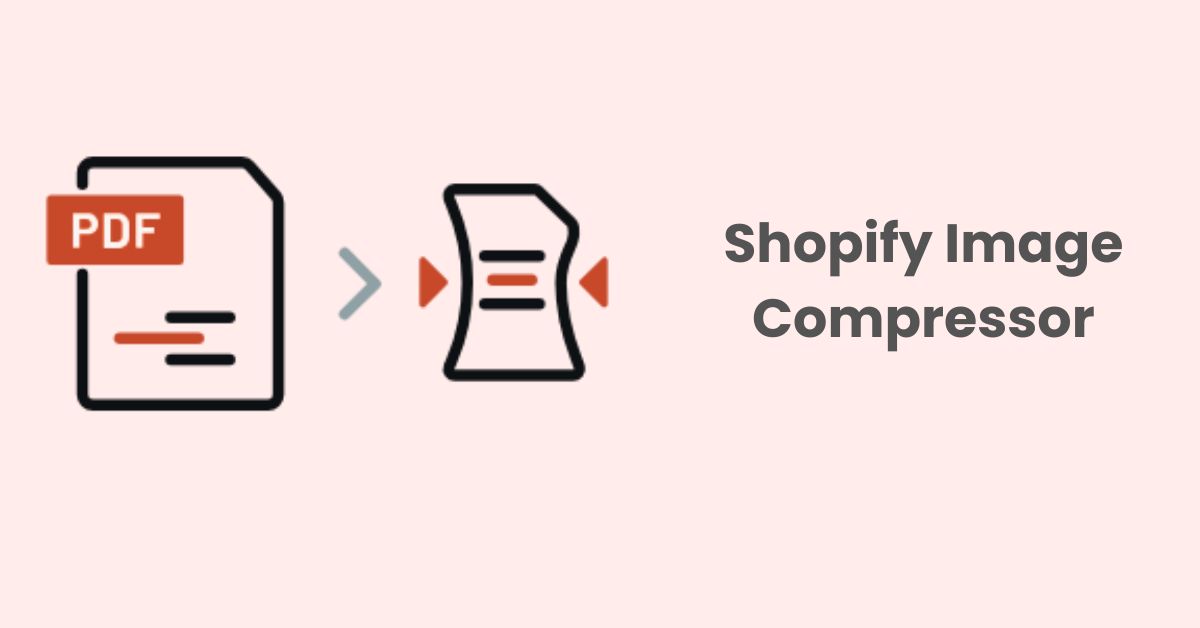White Hat Link Building: All You Need To Know 2024
In the ever-evolving realm of search engine optimization (SEO), achieving success necessitates the adoption of ethical, sustainable, and efficient methodologies. Among these methodologies, white hat link building stands out as a prominent practice.
In contrast to its black hat counterpart, white hat SEO prioritizes the aspects of quality, relevance, and adherence to search engine guidelines.
Within this comprehensive guide, we will extensively explore the domain of white hat link building, examining strategies and techniques that not only enhance the rankings of your website but also establish your online presence as a reputable and authoritative source.
What Is White Hat Link Building?
The term “White hat link building” pertains to the ethical and legitimate practice of obtaining backlinks, which are links from external websites to one’s own website, in accordance with search engine guidelines.
This practice is a crucial aspect of search engine optimization (SEO) and is employed to enhance a website’s position in search engine results pages (SERPs).
White hat link building tactics prioritize quality, relevance, and user experience, rather than attempting to manipulate search engine algorithms.
White Hat Link Building Principles
1. Quality Content Creation: High-quality content is the foundation of white hat link building. Your content should be valuable, informative, and engaging to attract organic backlinks. Quality content is more likely to be shared and linked to by other websites.
2. Relevance: Focus on acquiring backlinks from websites and pages that are relevant to your niche or industry.
3. Ethical Outreach: When contacting other website owners or bloggers for the purpose of link building, your outreach should aim to offer genuine value, avoiding any spam-like or manipulative tactics.
4. Transparency: It is imperative to maintain transparency regarding your intentions when seeking backlinks or collaborations. Engaging in clear and sincere communication fosters trust and enhances the credibility of your outreach endeavors.
5. Diversity of Sources: It is advisable to broaden the range of your link sources in order to establish a natural and organic link profile. The inclusion of links from diverse domains and types of websites holds greater significance compared to an abundance of links originating from a single source.
6. Quality Over Quantity: Prioritize the quality of backlinks over the quantity. A few high-quality, authoritative backlinks can have a more significant impact on SEO than numerous low-quality ones.
7. User-Centric Approach: Keep the needs and interests of your target audience in mind. By creating content and acquiring backlinks that provide value to users, you’re more likely to succeed in the long run.
8. Long-Term Strategy: Understand that white hat link building is a long-term strategy. Building a strong, ethical online presence takes time, but the results are sustainable and less prone to algorithmic changes.
White Hat Link Building Benefits
White hat link building, when done correctly, offers several significant benefits for your website’s search engine optimization (SEO) and overall online presence. Here are some of the key benefits of white hat link building:
Sustainably Improved Search Engine Rankings
High-quality backlinks from authoritative and relevant sources signal to search engines that your content is valuable and should be ranked higher.
As your website ranks higher in search results, it attracts more organic traffic from users actively searching for information or products related to your niche.
White hat link building strategies focus on sustainable and ethical practices. This means your website is less likely to be penalized by search engines for violating their guidelines, ensuring long-term success.
Also, your website is less vulnerable to algorithmic changes that can negatively impact black hat SEO practices.
Enhanced Credibility and Brand Recognition
Acquiring backlinks from reputable and trustworthy websites enhances your website’s credibility and authority within your industry.
As your content and website gain backlinks and visibility, your brand becomes more recognizable and well-known in your niche.
Better User Experience
White hat link building often involves creating valuable and informative content, which enhances the overall user experience on your website. This can lead to longer time spent on your site, lower bounce rates, and higher engagement.
Backlinks from other websites can also bring direct referral traffic to your site. When users click on links from other websites to access your content, they become potential customers or readers.
White Hat Link Building Vs Black Hat Link Building
White hat link building and black hat link building are two contrasting approaches to acquiring backlinks for a website in the realm of search engine optimization (SEO). These approaches differ significantly in terms of ethics, techniques, and adherence to search engine guidelines.
| White Hat Link Building | Black Hat Link Building | |
| Compliance | Strictly adhere to search engine guidelines and are considered ethical and legitimate. | Violate search engine guidelines and are considered unethical and manipulative. |
| Goals | Acquire high-quality, relevant, and authoritative backlinks through valuable content and ethical outreach. A sustainable, long-term strategy to build a website’s authority over time. | Acquire a large number of low-quality, irrelevant, and spammy backlinks through automated or deceptive means. A short-term strategy aimed at quickly boosting search rankings. |
| Content Value | High-quality content creation is at the core of white hat link building. Websites attract links naturally by providing valuable and informative content. | Involve little or no focus on content quality. Websites may use tactics like hidden links, link farms, and spun content. |
| Risks | There is little to no risk of penalties from search engines when employing white hat techniques. | Risk penalties from search engines, including being removed from search engine results altogether. |
| Practices | Guest posting, content marketing, influencer outreach, resource outreach, and earning editorial links are common white hat link building techniques. | Link farming, paid links, automated link building tools, keyword stuffing, hidden text, and cloaking are examples of black hat link building techniques. |
In summary, the main difference between white hat and black hat link building lies in their adherence to ethical standards and search engine guidelines.
White hat link building emphasizes quality, content, and long-term sustainability, while black hat link building prioritizes shortcuts and often involves manipulative and unethical practices that can lead to severe penalties from search engines.
White hat techniques are generally recommended for sustainable, ethical SEO practices.
10 Best White Hat Link Building Techniques
Qualified whitehat techniques not only improve your website’s SEO but also contribute to its long-term benefits. Here are ten of the best white hat link building techniques:
1. Creating High-Quality Content
The provision of high-quality content is not only a fundamental element of a successful online presence but also serves as the cornerstone of white hat SEO. This approach is aligned with ethical SEO practices, as it prioritizes the delivery of value to users.
Strategies for creating valuable content:
- Writing high-quality guest posts for reputable websites in your industry.
- Include a link back to your website in your author bio or within the content.
- Ensure that your content is informative and adds value to the host website’s audience.
Things you should consider: keyword research, data collections, user friendly format, call to action, measurable goals, regular feedback, consistency, …
2. Guest Blogging: A Win-Win Approach
Guest blogging is a strategic approach in content marketing and link-building, wherein an author crafts and publishes a blog post on a website that is not their own.
Guest bloggers start by finding relevant websites and blogs in their niche. They research the host website’s content, writing style, and guest submission guidelines.
They contact the website owner or editor to inquire about guest blogging opportunities. They pitch content ideas that align with the host website’s strategy and audience value.
If the pitch is accepted, specific guidelines are provided. The completed article is submitted and scheduled for publication after meeting the host website’s standards. This practice yields advantages for both the guest blogger and the hosting website.
3. Content Marketing for Backlinks
Creating exceptional, shareable content on your own website and promoting it through social media, email marketing, and other content distribution channels is a form of white hat building. Quality content naturally attracts links from other websites.
Even the most exceptional content won’t make an impact if it’s not seen by the right audience. Content promotion ensures that your content reaches a wider and more targeted audience while building stronger relationships with your audience and receiving valuable feedback.
Besides, promoting your content through various channels increases traffic, which can lead to more engagement, conversions, and brand exposure.
Additionally, leveraging social media, email marketing, and outreach are essential strategies for promoting your content effectively and reaching a broader audience. According to Vestorly, you can use these channels to maximize the impact of your content promotion efforts:
- Social media: content sharing, hashtags, paid promotion
- Email marketing: newsletter, A/B testing
- Outreach: influencers outreach, blogger collaboration, PR outreach
4. Resource Page Link Building
Resource pages are web pages that curate and enumerate beneficial links and resources pertaining to a particular subject, sector, or specialization. Gaining backlinks from such pages can greatly enhance your website’s SEO and prominence. Here is a guide to identifying resources for your whitehat building pages:
- Google Search: Queries such as “your niche + resources,” “your niche + links,” or “best resources for your niche” can be employed. Evaluate the search results to identify websites featuring dedicated resource pages, often titled “Useful Links,” “Helpful Resources,” or “Recommended Reading.”
- Use Advanced Search Operators: Google offers advanced search operators that can help you refine your resource page search. For example:
“intitle:resources your niche”
“inurl:links your niche”
“intext:helpful resources your niche”

- Competitors Analysis tools: Ahref explorer, Moz, SEMrush, Search Pie’s onepage

- Niche Forums and Communities: Look for discussions or threads where members share and discuss valuable resources. These discussions can lead you to resource page opportunities.
- Content research: Explore social bookmarking websites like Delicious, Pocket, or Diigo, where users often save and categorize web resources. Search for relevant tags or categories.
5. The Visual Impact: Infographics for links
Design and promote informative infographics related to your industry or niche. Infographics facilitate the comprehension and retention of intricate data or concepts by presenting them in a concise and easily understandable format which is crucial for whitehat SEO.
Their visually appealing nature promotes social sharing, as people are inclined to disseminate visually attractive and informative content. Moreover, the utilization of high-quality infographics can generate backlinks from external websites, thereby enhancing search engine optimization.
Additionally, infographics offer a platform to exhibit a brand’s distinctive colors, logo, and design style, which, when shared by users, amplifies brand visibility.
6. Harnessing Expert Roundups
Organize expert roundups on your blog where you feature insights from industry experts on a particular topic, which improve:
- Diverse Insights: Expert roundups offer diverse perspectives on a particular subject, enabling readers to gain insights from numerous experts and obtain a comprehensive understanding of the topic.
- Content Quality: The involvement of experts frequently yields superior content. Their provision of valuable insights, research, and practical advice can broaden the appeal of the content.
- Networking opportunity: Hosting roundups provides an opportunity to establish connections with influential individuals and industry experts, cultivating significant relationships that can be leveraged for future collaborative endeavors.
- Whitehat link building: Professionals frequently distribute and connect to the compilation, thereby creating backlinks to your webpage, a practice that can enhance your search engine optimization.
7. Broken Link Building: A Helping Hand
Identify broken or outdated links on other websites, and then suggest your content as a replacement. This technique provides value to website owners by helping them fix broken links.
For example: Search Pie’s broken links tool
8. Testimonials and Reviews for Backlinks
Gaining backlinks through testimonials is a white hat link building strategy that can help you acquire high-quality and relevant backlinks to your website. If you use products or services related to your industry, provide testimonials or reviews on the respective websites. In return, you may receive backlinks to your website.
Authenticity is key for success in this strategy. Testimonials should only be given for genuinely appreciated products or services. Specific praise is more valuable than generic testimonials.
Ensure endorsements are relevant to your niche or industry for better context in the backlink.
9. HARO (Help a Reporter Out) for PR Links
Sign up for HARO and respond to relevant queries from journalists and bloggers. If your response is included in their article, you may earn a valuable backlink.
To earn backlinks from authoritative sources through HARO, consider the following strategies:
- Target Relevant Queries: Focus on responding to queries that are closely related to your niche or industry. Relevance is key to earning backlinks.
- Provide Unique Insights: Offer insights or data that are not readily available elsewhere. Journalists are more likely to use sources with unique perspectives.
- Build Relationships: If a journalist uses your response in their article, express gratitude and offer to provide additional insights in the future. Building relationships with journalists can lead to more opportunities.
- Track Mentions: Use online tools to monitor mentions of your name, brand, or website. When your responses are published, you can confirm and track the backlinks.
HARO can be a valuable tool for gaining media coverage and backlinks from authoritative sources.
10. Monitoring and Measuring Success
Monitoring and measuring the success of your white hat SEO efforts is crucial for assessing the effectiveness of your strategies and making informed adjustments for better results.
Here’s how to track and analyze your white hat SEO efforts and adapt your strategies:
- Keyword Rankings: Tools like SEMrush, Moz, or Search Pie can help you track keyword positions over time.

- Traffic and Click-Through Rates (CTR): Analyze your website’s traffic data to see if there’s an increase in organic search traffic
- Organic Search Impressions: Check the number of times your website appears in search results (impressions).
- Conversion Rate: Track the conversion rate for your website, such as sign-ups, downloads, or purchases. Higher rankings should ideally lead to improved conversion rates.
- Domain Authority (DA): Keep an eye on your website’s domain authority using tools like Moz’s Domain Authority, and Search Pie’s backlink checker.

- Page Load Speed: Check your website’s loading speed, as this can impact user experience and search rankings. Tools like Google PageSpeed Insights can help you assess and improve loading times.
- Bounce Rate: Monitor the bounce rate of your website’s pages. A lower bounce rate suggests that users find your content engaging and relevant.
- Click-Through Rate in SERPs: Use Google Search Console to analyze the click-through rate of your pages in search results. Optimize titles and meta descriptions for better CTR.
- Content Engagement: Track metrics like time on page, scroll depth, and social shares for your content. Engaging content often leads to better SEO results.
Remember that the success of these techniques depends on the quality of your content and your outreach efforts. Building relationships with other website owners and providing value to their audiences are key aspects of successful white hat link building.
Additionally, always prioritize relevance and quality over quantity when seeking backlinks, as this approach aligns with search engine guidelines and ensures long-term SEO benefits.
Conclusion
White hat link building is not merely an SEO strategy; it represents a commitment to upholding ethical and sustainable practices for achieving online success.
By prioritizing the creation of high-quality content, genuine outreach efforts, and value-driven approaches, one can establish a strong online presence that not only achieves favorable rankings in search engines but also garners the trust and respect of the target audience.
It is crucial to bear in mind that in the ever-evolving realm of SEO, employing white hat techniques is the most reliable means of attaining enduring outcomes.
We trust that this comprehensive guide has provided you with the necessary knowledge and tools to master the art of white hat link building for SEO triumph. If you are looking for an SEO optimization tool, let’s install SearchPie – one of the top-rated Shopify SEO apps, and we will assist you in achieving that.





